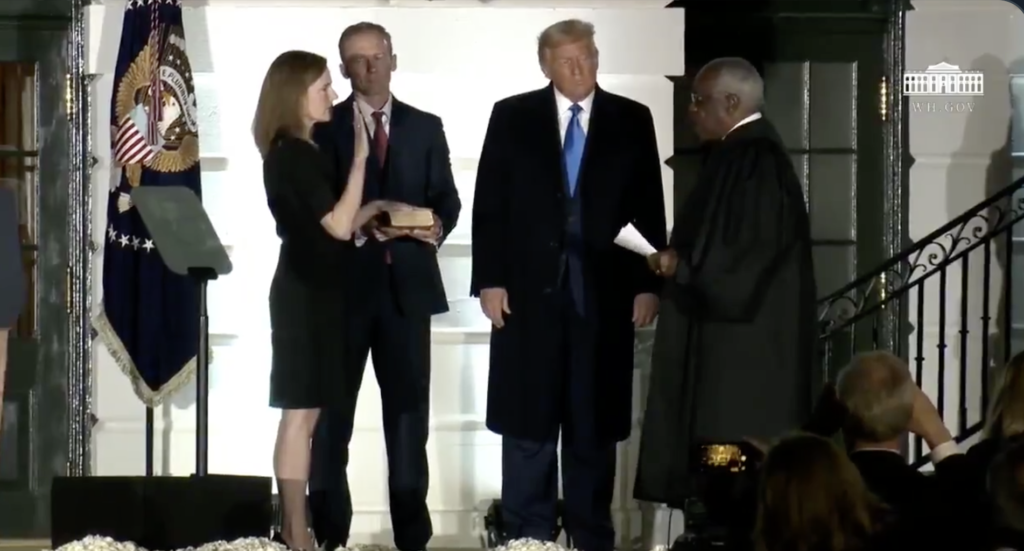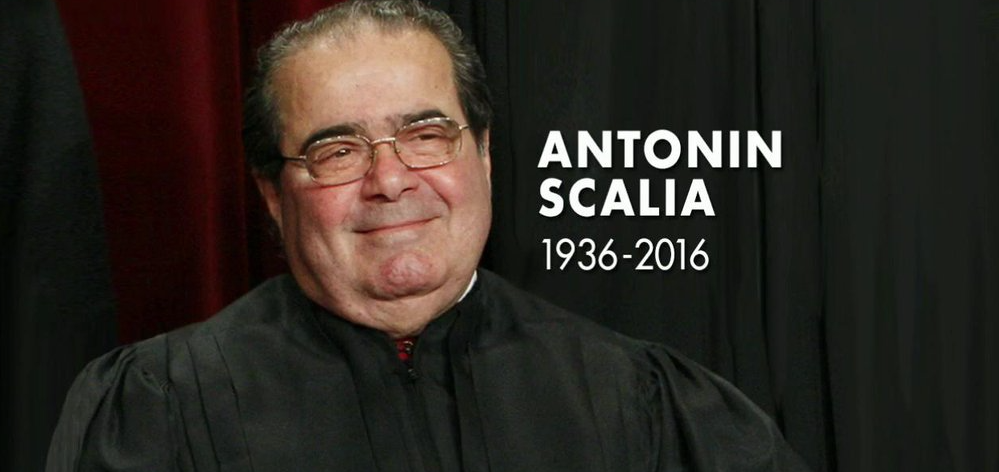US Justice Scalia Dies and The Politics Immediately Begin
13 Feb, 2016
U.S. Chief Justice John Roberts on Saturday confirmed the death of conservative colleague Justice Antonin Scalia.
“On behalf of the court and retired justices, I am saddened to report that our colleague Justice Antonin Scalia has passed away,” Roberts said.
“He was an extraordinary individual and jurist, admired and treasured by his colleagues. His passing is a great loss to the court and the country he so loyally served. We extend our deepest condolences to his wife, Maureen, and his family.”
The death of Justice Antonin Scalia on Saturday means that the normally nine-member U.S. Supreme Court will probably be down to eight when it rules on such divisive issues as abortion, immigration, affirmative action and the power of public-sector unions.
With a replacement unlikely to be appointed before the current Supreme Court term ends in June, there is the possibility it will be split 4-4 on a string of rulings. When the court is equally divided, the lower court ruling remains in place but no national precedent is set.
Scalia’s death will affect cases that have not yet been argued and those in which arguments were already held but no ruling has been issued. Court experts say that any preliminary votes Scalia took on cases already argued will no longer count.
His death could deprive the court’s conservative majority of some major wins, but does not guarantee wins for liberal causes. In the short term, Justice Anthony Kennedy, a conservative who sometimes sides with the four liberals, will still be the key vote.
That could change the outcome of a major case argued in January that could affect the influence of public-sector unions. The issue is whether public employees who do not want to join a union can be required to pay “fair share” service fees, which are equivalent to members’ dues, without violating First Amendment rights of free speech and association. Based on the oral arguments, it appeared the conservative majority was ready to vote against the unions.
Now, a 4-4 split is a likely outcome, which would hand a win to the unions as that would leave the lower court’s ruling in their favor in place.
Similarly, the court in December considered an important affirmative action dispute over whether a University of Texas admissions program that considers the race of some applicants to ensure campus diversity violates the constitutional guarantee of equality. It was unclear based on the oral argument how the court would vote.
Justice Elena Kagan was already recused in that case, so Scalia’s death means there can no longer be a 4-4 split. The liberal wing could now win if Kennedy joins them. That would lead to an unexpected victory for affirmative action advocates.
The court has not yet heard oral arguments in three major cases in which Scalia was likely to be a key vote on the conservative wing of the court.
On March 2, the court will consider a tough new abortion law in Texas that women’s health providers say infringes upon the constitutional right of women to have an abortion. The law requires clinics carrying out abortions to have costly hospital-grade facilities and requires physicians carrying out abortions to have admitting privileges at a hospital within 30 miles of where they are operating. It is the court’s first abortion case since 2007. If the court was split 4-4, the law would be upheld.
In April, the court is due to weigh President Barack Obama’s bid to resurrect his plan to shield more than four million illegal immigrants from deportation, a unilateral executive action he took in 2014 to bypass the Republican-led Congress. Scalia’s death does not necessarily boost the administration’s chances. Obama’s executive action was blocked by lower courts, meaning a 4-4 split would leave that ruling intact.
Reuters
Image ABC twitter
Mentioned In This Post:




















